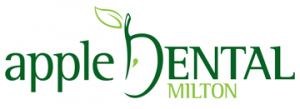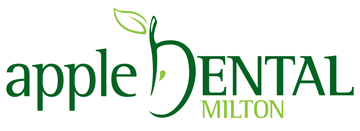Dental Cleaning
The dental profession refers to the dental cleaning appointment as a “dental prophylaxis,” or “prophy.” Its most significant functions are prevention of dental disease and patient education. It is likely the most important and valuable visit a patient may ever make to the dentist.
The routine dental cleaning is anything but routine, and should include:
- Personal oral hygiene evaluation, home care review and recommendations.
- Tooth brushing and flossing instructions.
- Supra gingival (above the gum) scaling to remove plaque and tartar from all visible tooth surfaces.
- Debridement of tartar beneath the gum, as conditions warrant.
- Topical fluoride treatment to the age of 13.
- Polishing the teeth.
- Nutrition assessment, if needed.
- Periodontal charting and scheduling of additional periodontal care as indicated.
- The dental prophylaxis is the cornerstone for a lifetime of dental health.
Ultrasonic and Hand Scaling
Plaque is the colonization of natural oral bacteria on food debris that remains on the surface and in the crevices of the teeth and gums. Combining with minerals in the saliva, it ultimately forms a hard, rough sediment known as dental tartar or calculus, which attracts further plaque buildup. Calculus must be removed by a dental professional for the prevention of periodontal disease.
Removal of calculus may be performed by a licensed dental hygienist or dentist, either by manual scaling of the teeth or with an ultrasonic device. The choice of technique is a personal preference by the hygienist or wishes of the patient.
Light or moderate tartar buildup is commonly removed by manual scaling instruments of various shapes and sizes. The hygienist’s skills are especially important for this procedure.
The ultrasonic scaler, commonly called by the brand name Cavitron®, is often indicated for the efficient removal of heavy, tenacious tartar and stains. The hygienist may follow its use with hand scaling for a more finite smoothing of tooth and root surfaces.
Caution is warranted for people who wear pacemakers, as the ultrasonic sounds may interfere with the function of the pacemaker.
Root Planing
Accumulation of plaque causes inflammation of the gums and an ensuing breakdown of the periodontal attachment (the fibrous connection of the teeth to the supporting structures). Pockets between the teeth and soft tissue become deeper and the underlying bone recedes. Increased pocket depth encourages the formation of more calculus, plaque and further tissue breakdown. The ongoing bacterial colonization byproducts perpetuate the disease process.
Root planing is a procedure to treat periodontal conditions (moderate to advanced gum disease) by thoroughly scaling the roots of teeth to establish a smooth, calculus free surface. The process may be performed by a dental hygienist, dentist or periodontist (gum specialist), and usually requires local anesthesia to prevent pain. Thorough periodontal scaling customarily involves several dental visits.
More advanced conditions may necessitate periodontal surgery for complete debridement of the roots and recontouring of the hard and soft tissue to arrest the disease process or to restore, in select situations, lost bone.
Polishing
The dental prophylaxis is refined by a final polishing of the teeth to remove stains and create a sensation of fresh breath and a clean mouth.
The Dental Recall Appointment
Patients should schedule their recall appointments on a regular basis for the early diagnoses of dental disease. The hygienist or dentist may recommend a prophylaxis visit every two to six months. Even if your dental insurance plan only covers the procedure twice a year, it’s money well spent. Recall frequency depends on many factors and should be determined on an individual basis. Some people tend to have more buildup of calculus than others and some may be more prone to periodontal inflammation or the development of tooth decay. Patients with inadequate oral hygiene practices will require more frequent cleanings.
Dental Cleaning for Children
The dental prophylaxis is especially important for children to establish good oral hygiene practice and to appreciate the importance of dental health. Easy dental prophy appointments help create self-esteem and will lessen anxiety should dental restorative care become necessary in the future.
The regular application of topical fluoride, early detection of orthodontic (bite) problems, and an evaluation for pit and fissure sealants are part of preventive dental health.
Dental cleanings include tooth and gum treatments.

